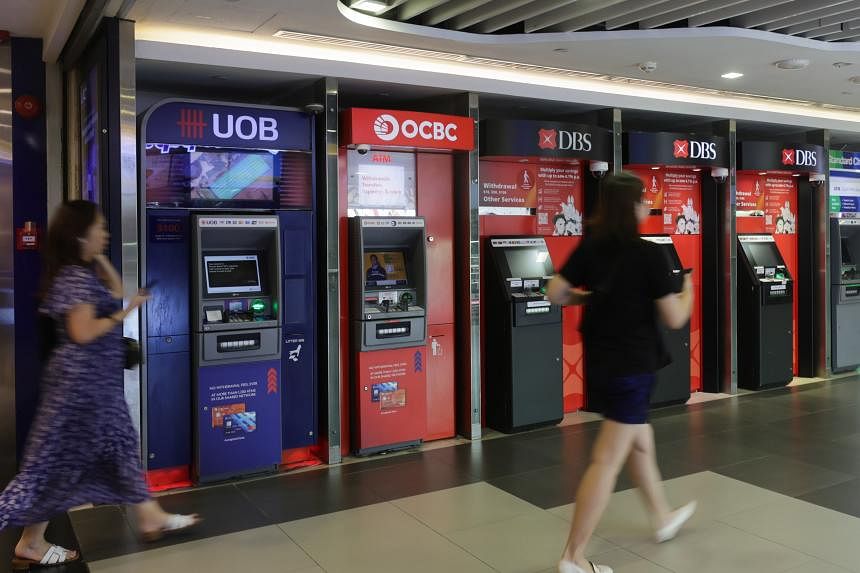Bridging Cultures: Decoding Asia's Pivotal Role in Crypto Adoption
Have Western media underestimated Asia's leading role in crypto adoption? This in-depth article explores how the region is surpassing estimates, from India topping global indexes to Thailand launching a UBI airdrop.

When Asian markets open or close for the day, it significantly impacts cryptocurrency prices globally. Their influence and dominance have triggered much more than just stops for traders worldwide. However, what if we told you that Asia could be leading overall adoption more than commonly reported by Western crypto outlets.
This article explores Asian market insights into cryptocurrencies and why it would be prudent to recognize crypto as a global phenomenon with options laying far beyond just U.S. markets.
Exploring the Asian Crypto Landscape
The 2023 index from ChainAnalysis found that the Central & Southern Asia region leads in cryptocurrency adoption globally. Six of the top ten countries on the index are located in Central & Southern Asia, showcasing the prominent role of the region. India ranked as the number one country overall.
Top 10 global cryptocurrency adoption index in 2023 according to @chainalysis
— OneArt (Crypto & NFT Wallet) (@art_wallet) September 13, 2023
1. India 🇮🇳
2. Nigeria 🇳🇬
3. Vietnam 🇻🇳
4. United States 🇺🇸
5. Ukraine 🇺🇦
6. Philippines 🇵🇭
7. Indonesia 🇮🇩
8. Pakistan 🇵🇰
9. Brazil 🇧🇷
10. Thailand 🇹🇭
Where are you from? Let's make OneArt's…
However, crypto adoption extends beyond just the leading countries in Asia, such as South Korea, Japan, Hong Kong, and Singapore. It could be said that Asian founders have demonstrated a deep understanding of user behavior, leading to successful mass adoption of applications. Looking at the success stories of Tencent, WeChat, and TikTok, all of which demonstrate this exactly.
In the crypto world, we see that many successful exchange founders have Asian backgrounds, and some of the most successful applications have been developed by Asian founders.
Regulatory Environment in Asia
Asia has become more open to cryptocurrency, aiming to become a fintech and crypto leader. With clear regulatory frameworks provided for exchanges, liquidity providers, market makers, and funds, many so-called hubs such as Singapore, South Korea, and Hong Kong are pushing the envelope in this direction.
As the US remains hostile to crypto founders and investors, there will likely be a significant shift of capital and talent in the industry to Asia. As seen with the massive fine imposed by US regulators on the exchange Binance.

Asian Crypto Hubs
According to industry insiders, several key factors define a successful crypto hub. Firstly, regulation is crucial, ensuring stability in crypto markets and allowing blockchain technologies to scale.
Secondly, each Web3 hub has unique local characteristics, such as infrastructure. Is the location establishing the necessary connections between traditional systems and decentralized networks, enabling future Web3 growth?
While Silicon Valley is well-known as a tech hub, we can fairly say that Hong Kong or Singapore are not far behind given their initiatives. Let’s examine some emerging Asian hubs committed to Web3 and cryptocurrency.

Hong Kong
According to the Chainalysis report, Hong Kong ranked fifth in crypto transaction volume in East Asia between July 2022 and June 2023, with an estimated $64 billion received despite having a population only 0.5% the size of mainland China's. While cryptocurrency has been banned on the mainland, Hong Kong's active over-the-counter crypto market has grown significantly.
Edith Young, a general partner at Race Capital, points out that unlike in the U.S., where the word "crypto" is often met with fear and skepticism, in Hong Kong the narrative is the complete opposite. The city not only welcomes crypto and blockchain technologies but also actively fosters an environment where developers feel safe to build.
Could Hong Kong be a testing ground for approaches that could eventually be adopted on the mainland of China? Hong Kong is home to over 8 million people, but the potential user base expands to 1.2 billion when including mainland China. Of course, this is only possible if China changes its stance and wants its citizens to be their own bank, which seems unlikely in the near term.
Singapore
Over the past several years, Singapore capitalized on Hong Kong's initial stricter regulatory approach to cryptocurrency, resulting in ‘crypto prosperity’ as builders, companies, and capital flowed smoothly into Singapore.
Singapore's three major banks - DBS, OCBC and UOB - are currently conducting trials involving programmable digital money. These trials aim to solve problems in cross-border payments, wholesale CBDC settlements, and asset tokenization.
These current initiatives provide testing grounds for a future rollout of purpose-bound digital money and governmental disbursements without the need for bank accounts. Regulators are targeting 2024 to develop CBDCs for interbank settlements.

South-Korea
Besides the two ‘smaller’ hubs of Hong Kong and Singapore, South Korea is known for its early adoption of cryptocurrency. In a recent survey conducted by the South Korean government's financial intelligence unit, it is estimated that there are approximately 6 million crypto investors in South Korea, representing over 10% of the country's total population.
This clearly indicates that South Korea is a global hotspot for cryptocurrency investment and its population has clearly embraced digital currency. Also, South Korean exchanges have maintained strong trading volumes compared to other global exchanges, with Upbit leading the domestic market at around 80% market share while Bithumb holds the second largest position at 15-20%.

We will not discuss North Korea's influence on crypto engagement here, as that topic is often related to data breaches or hacking of protocols and exchanges. 😱
Similar to Singapore, South Korea's central bank, the Bank of Korea (BOK), is set to launch a pilot program for a central bank digital currency (CBDC) in 2024. The pilot will involve 100,000 citizens who will be able to make purchases using "deposit tokens" issued by commercial banks in the form of a CBDC.

In other news, the National Pension Service of South Korea, which manages over $800 billion in assets and ranks as the world's third largest pension fund, has reported gaining approximately 40% from its investment in Coinbase stocks during the third quarter of 2022. So even older generations are profiting from these ‘new’ blockchain investments - have you seen pension funds partake in such opportunities elsewhere? Interested in how funds are changing over time? Check out our article below.

Other Significant News
National Airdrop Thailand
Thailand's newly elected Prime Minister Srettha Thavisin had campaigned on a universal basic income program. The new program would distribute 10,000 Thai baht (around $285 USD) to every citizen aged 16 years or older. Essentially, it would airdrop digital tokens to Thai citizens.
This infrastructure is not yet ready, and identifying everyone through KYC procedures may take time as it requires approval from Thailand's financial regulators. However, the direction is clear. The estimated cost of this program is 560 billion baht ($16 billion USD).
The new government is anticipated to begin working to implement this digitized UBI program through a central bank digital currency. A very interesting development.

Bhutan Kingdom Mining Bitcoin
The Kingdom of Bhutan confirmed that it has been mining bitcoin for several years (since 2017) through its state-owned investment arm, Druk Holding and Investments (DHI).
DHI CEO Ujjwal Deep Dahal revealed that this bitcoin mining operation in Bhutan as part of its diversified portfolio, by utilizing inexpensive, green hydroelectric energy of which it has an abundance.
The kingdom is following El Salvador as one of the first movers in fully entrusting its reputation on cryptocurrency.

What Challenges Do Asian Founders Face When Going Global?
There are several significant challenges that Asian crypto entrepreneurs may face should they attempt to expand their businesses into global markets.
One main hurdle is overcoming cultural differences and lack of understanding of customer preferences and behaviors in overseas places like the United States and Europe. Where tastes and traditions can diverge, for better or for worse.
Regulation also poses complexity, with authorities potentially preferring solutions they directly control over foreign ones. Regulators may come down too often, adding a regulatory pressure that makes some regions essentially off limits (U.S).
Furthermore, Asian startups need to gain trust and access to global pools of investors and liquidity. However, this is not always easy because investors want protections that regulators outside of Asia cannot guarantee for projects beyond their control.
How does the Future Look for Companies in Asia?
The future outlook for cryptocurrency companies based in Asia looks extremely promising according to recent developments and ambition. Over the past year, Asia has rapidly emerged as a leader in terms of crypto adoption and implementation of Web 3 innovations.
This surging on-the-ground demand across Southeast Asia points to a very favorable environment for crypto businesses seeking new users and markets. Entrepreneurs from the region have already showcased their understanding in other technology sectors and will only cement their reputation for innovative thinking as they form more blockchain innovation hubs.
Want to know where exactly CBDC plans are being brewed? Check out our article on Financial Freedom vs. Financial Tyranny.

Conclusion
Asia's growing dominance in the cryptocurrency landscape is more than visible for anyone who follows crypto. As it seems a better place to do business due to their friendly and more open regulation, both citizens and governments have been onboard the bandwagon longer than in any Western country.
By wanting to become new fintech hubs like Hong Kong, Singapore and South Korea, they are pushing innovation in a way that benefits the overall reputation of crypto. Now we wait and see what interesting developments this worldwide industry will bring in the future.

Connect with Bitfinity Network
Bitfinity Wallet | Bitfinity Network | Twitter | Telegram | Discord | Github

*Important Disclaimer: While every effort is made on this website to provide accurate information, any opinions expressed or information disseminated do not necessarily reflect the views of Bitfinity itself. The information provided here is for general informational purposes only and should not be considered as financial advice.








Comments ()